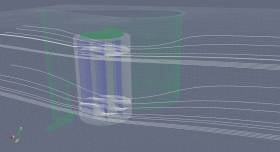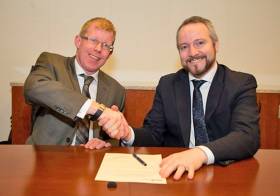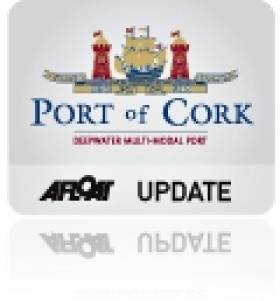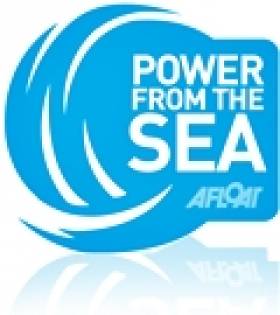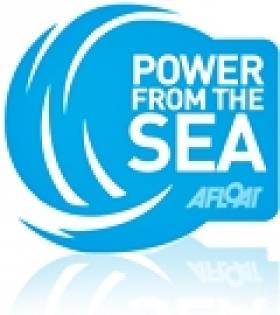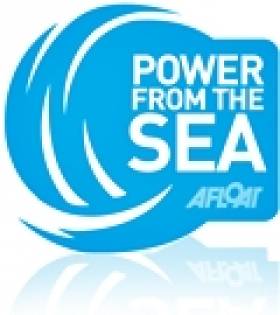Displaying items by tag: SEAI
Inland Fisheries Ireland Awarded Prize in SEAI Energy Awards 2023
Inland Fisheries Ireland (IFI) has been awarded first prize in the ‘Leadership in Public Sector Decarbonisation and Energy Efficiency’ category at the Sustainable Energy Association of Ireland’s (SEAI) 20th Annual Energy Awards ceremony recently held at the Mansion House in Dublin.
The award recognised IFI’s efforts since 2009 to improve its energy efficiency by 44.5 per cent, thanks to initiatives suhc as the installation of 18 solar PV systems, the addition of 52 electric vehicles to its fleet and the development of a national EV charging network at 32 locations to date.
Brian Beckett, director of IFI Dublin said: “We are grateful and humbled to be among Ireland’s leading businesses and State agencies in decarbonisation in Ireland today… This award recognises years of tireless effort by all of the IFI team.
“Sincere thanks and congratulations are due to all IFI staff for their drive and commitment to energy efficiency improvement and a sustainable future for all. The commitment and leadership shown by our board and senior leadership team matched by the ambition and creativity of our local and national Green Teams will ensure that we reach and exceed our decarbonisation targets to 2030 and beyond.
“We’re convinced that creativity, collaboration, partnership and innovation are the keys to unlocking a sustainable future for all and we welcome all opportunities to work with those who have common goals in this critical area.”
This year at the SEAI Energy Awards there were 40 finalists from 114 applications, who collectively reduced energy consumption by 16%, saving €50 million. The renewable energy produced by the 2023 entrants is equivalent to powering over 400,000 homes per year.
Marine Notice: Survey Investigation Works for Atlantic Marine Energy Test Site
The Department of Transport has been advised by Sustainable Energy Authority Ireland (SEAI) that the Marine Institute will undertake site investigation survey works at the Atlantic Marine Energy Test Site (AMETS) in Co Mayo.
The survey is expected to be completed over a 10-day period from Sunday 17 September, subject to weather and operational constraints.
Geophysical and geotechnical survey work and benthic sampling will be carried out at Test Area A, 16km from Belderra Strand, and Test Area B, 6km from Belderra Strand on the Erris Peninsula. Benthic sampling will be carried out along the proposed cable corridor at AMETS.
The survey vessel RV Celtic Explorer (callsign EIGB) will carry out the site investigation works. Throughout operations, the vessel will be displaying appropriate lights and shapes, and will also be restricted in its ability to manoeuvre.
Other vessels operating in the AMETS area are requested to give the survey vessel a wide berth during survey operations. Mariners are also advised to keep continuous watch on VHF Channel 16 when navigating the survey area at AMETS.
Coordinates and a map of the survey areas as well as contact details can be found in Marine Notice No 55 of 2023, attached below.
Funding For New Tidal Energy Project At Limerick Docks
#SeaPower - A prototype tidal energy turbine project in the Shannon Estuary has received almost €100,000 in funding for further development, as the Limerick Post reports.
GKinetic has been testing a scale prototype of its new hydrokinetic turbine for the last year, at a purpose-built facility in Limerick Docks set up in tandem with the Shannon Foynes Port Company.
The new funding of €99,562 from the Sustainable Energy Authority of Ireland’s (SEAI) Prototype Development Fund will support testing on an improved prototype from August for a six-week period, as the company ramps up plans to scale up the design to a 250kW tidal device.
GKinetic’s technology is already being commercialised by fellow Co Limerick company DesignPro, who secured funding earlier this year under the Horizon 2020 project to test its own river energy devices at scale.
The Limerick Post has much more on the story HERE.
Inland Fisheries Ireland Signs Up To Save Energy With SEAI
#IFI - Inland Fisheries Ireland has officially signed up to the Sustainable Energy Authority of Ireland’s (SEAI) Partnership Programme, which helps integrate energy management into public sector organisations.
This new partnership will see IFI follow a clear path to achieving targeted energy savings of 33% across the public sector, with a view to achieving year-on-year savings of greater than 3% on top of the 21% increase in efficiency already reached sector-wide.
The State fisheries body says it has already commenced a number of energy saving initiatives in recent years, which include the introduction of ‘green patrols’ for fisheries officers using kayaks and bicycles to patrol angling areas on inland waterways; installing solar panels and insulation on buildings; fuel monitoring and fleet audits; altering lighting; and trialling an electric vehicle.
IFI chief executive Dr Ciaran Byrne commented: “As custodians of the fisheries resource, Inland Fisheries Ireland recognises the importance of energy management as a highly cost-effective means of reducing greenhouse gas emissions and helping to reverse climate change.
“Today [Tuesday 7 March] we have formally committed to reducing our energy usage and our carbon emissions and we look forward to working with the SEAI on reaching our goal by 2020.
“There are many benefits to energy efficiency and aside from environmental reasons; we are also motivated by the desire to operate in a lean manner. We know that many organisations can achieve 20% monetary savings in energy use through proven management and technology solutions so as an organisation, we will benefit year on year.”
Jim Gannon, CEO of the SEAI, added that the agency “is working closely with the public sector to help them to achieve energy savings and agencies such as IFI have a key role to play.
“Already, public bodies have achieved more than €600 million in energy efficiency savings in the last few years with SEAI’s assistance. With more partnerships like the one Inland Fisheries Ireland has committed to today, even more public sector savings can be achieved as we move towards a low carbon future.”
Port of Cork Signs Up to Energy Savings
#EnergyCORK- The Port of Cork Company have signed up as a partner of Sustainable Energy Authority of Ireland (SEAI) at a launch held recently by Energy Cork.
The partnership will see the port implementing an Energy Action Plan which will contribute to the national Public Sector energy efficiency improvement target which has been set for 2020. 'The National Energy Efficiency Action Plan 2009-2020' set a target of 33% reduction in energy use and its fulfilment will have a significant impact on the success of the Irish economy and on the creation of a more sustainable environment into the future.
This strategic plan will work in conjunction with the Port of Cork's existing environmental policy, and will aim to deliver energy savings of at least 3% annually which will see a significant reduction in energy consumption across the Port's operations.
Commenting on the partnership, Denis Healy, Manager of Engineering Services at the Port of Cork said "As we are a 24 hour port working 365 days a year, we are continuously looking for ways that we can become more energy efficient. This new partnership with the SEAI gives us a great opportunity to develop a structured programme and adopt best practice standards to work in a more sustainable way."
A key aim of the SEAI is to help public sector organisations achieve energy efficiency through facilitating the Partnership Programme, which offers a support package to large organisations towards meeting their obligations, in return for commitment to energy management.
The Port of Cork joins a number of other high profile organisations who have already become partners of the SEAI including UCC, the Defence Forces and Bus Eireann.
Dublin Hosts Ocean Energy Conference
#POWER FROM THE SEA - The fourth International Conference on Ocean Energy (ICOE) begins tomorrow Wednesday 17 October at the Convention Centre in Dublin's Docklands.
Over 750 international experts and world-leading companies in ocean energy will gather in Ireland’s capital city for the three-day conference, hosted by the Sustainable Energy Authority of Ireland (SEAI) in association with the European Ocean Energy Association.
Global industry and academic experts in marine renewable energy will present over a hundred papers on themes important to growing this new marine sector.
The conference also provides an opportunity for a trade exhibition where many of the top industrial players will demonstrate the latest technologies in harnessing renewable energy from the sea.
The International Conference on Ocean Energy is the global marine energy event focused on the industrial development of renewable marine energy. Held every two years, the goal of the conference and exhibition is to share recent experiences from research and demonstration efforts.
It aims to accelerate development by stimulating collaboration networks between companies and research and development centres. It also specifically targets engagement of the experience of operators in related marine and power industry sectors.
For more details see the information flyer available to read or download HERE.
UCC Wave Energy Trials Central to New Maritime Cluster
#POWER FROM THE SEA - A €9 million Europe-wide wave energy trial programme is one of the key elements of a new Government programme designed to transform Ireland as a maritime nation.
According to The Irish Times, University College Cork's Hydraulics and Maritime Research Centre will run testing of wave energy, tidal energy and offshore wind energy devices across a network of sites in 12 European countries participating in the new marine renewables infrastructure network Marinet.
Irish test sites in the network include the national ocean test facility in Cork and centres operated by the Sustainable Energy Authority of Ireland (SEAI) at Galway Bay and Belmullet.
The UCC centre also forms part of the new Irish Maritime and Energy Resource Cluster (IMERC), launched last Friday by Taoiseach Enda Kenny.
The cluster comprises UCC, the Irish Naval Service, Cork Institute of Technology and the National Maritime College of Ireland with the initial aim of creating 70 new research jobs by 2014 in the areas of wave energy, green shipping and sustainability of ocean resources.
IMERC director Dr Val Cummins said: “The aim of IMERC is to promote Ireland as a world-renowned research and development location that will unlock Ireland’s maritime and energy potential."
The Irish Times has more on the story HERE.
- Irish Naval Service
- maritime
- Cork
- Galway Bay
- Belmullet
- National Maritime College of Ireland
- wind energy
- UCC
- Cork Institute of Technology
- renewable energy
- wave energy
- sustainable energy
- tidal energy
- network
- testing
- Sustainable Energy Authority of Ireland
- Taoiseach Enda Kenny
- SEAI
- Hydraulics and Maritime Research Centre
- Marinet
- devices
- Irish Maritime and Energy Resource Cluster
- IMERC
- Dr Val Cummins
New Scheme to Measure Noise Pollution from Wave Energy
#POWER FROM THE SEA - The Sustainable Energy Authority of Ireland (SEAI) is teaming with IBM in a new project to assess the noise levels of wave energy devices off the Irish coast.
The scheme will see an array of noise sensing equipment such as hydrophones deployed in Galway Bay to monitor the noise levels of wave energy conversion devices in real time, as well as map patterns of marine life in the area.
According to AOL Energy, noise pollution at sea is a chief concern, having a disturbing effect on fish migrations among other marine ecosystems.
The west of Ireland will prove an important case study in this regard, as it hosts one of the world's largest wave energy infrastructures.
"Underwater noise is a global environmental issue that has to be addressed if we are going to take advantage of the huge potential of ocean energy," said EU Commissioner for Research, Innovation and Science, Maire Geoghegan-Quinn.
AOL Energy has more on the story HERE.


























